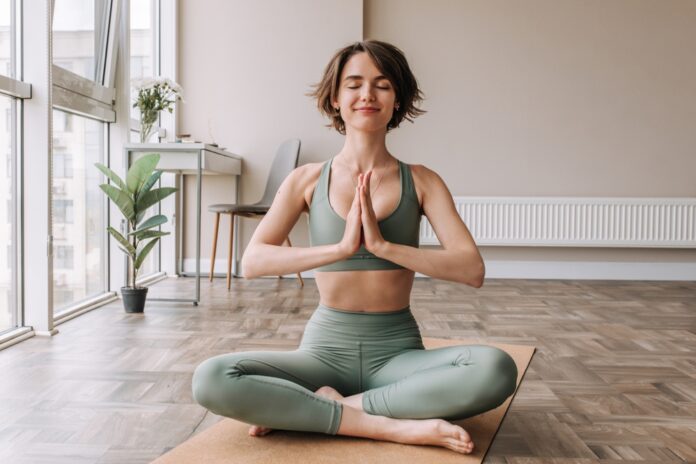In our fast-paced world, stress and anxiety have become common experiences for many people. While there are various strategies to manage these feelings, exercise stands out as one of the most effective natural remedies. Engaging in physical activity not only enhances physical health but also significantly improves mental well-being by reducing tension, elevating mood, and promoting relaxation.
1. Aerobic Exercise
Activities that increase your heart rate, such as running, cycling, or brisk walking, can help alleviate stress and anxiety. Regular aerobic exercise stimulates the production of endorphins—chemicals in the brain that act as natural painkillers and mood elevators.
The Mayo Clinic emphasizes that physical activity can serve as a stress reliever by boosting endorphins and improving your overall mood.
2. Mind-Body Practices
Exercises that combine physical movement with mindfulness, such as yoga and tai chi, are particularly effective in reducing stress and anxiety. These practices involve deep breathing, gentle movements, and meditation, which can help calm the mind and relax the body.
According to Healthline, yoga and similar practices can complement traditional treatments by incorporating beneficial breathing techniques essential for managing stress.
3. Strength Training
Strength training, including weightlifting and resistance exercises, not only builds muscle but also releases endorphins, helping to reduce stress levels. It can enhance self-confidence and provide a sense of control and empowerment.
Xyla Health & Wellbeing notes that engaging in strength training can improve muscle strength and release endorphins, thereby reducing stress.
4. Walking and Hiking
Walking is a simple yet effective way to reduce stress. Mindful walking, where you focus on your breathing and surroundings, can help clear your mind of anxious thoughts. Hiking, especially in natural settings, combines the benefits of physical activity with the calming effects of nature.
As mentioned by Talking Circles Therapy & Wellness, hiking merges physical activity with nature’s therapeutic effects, reducing symptoms of anxiety and depression.
5. Swimming
Swimming provides a low-impact full-body workout, and the soothing properties of water can have a calming effect. The rhythmic movements and controlled breathing involved in swimming can help alleviate stress and promote relaxation.
Talking Circles Therapy & Wellness explains that swimming offers calming effects through the support of water and deep breathing, reducing stress.
6. Dancing
Dancing is an enjoyable way to get moving and can lift your spirits through self-expression. It combines physical exercise with mental engagement, helping to reduce feelings of stress and anxiety.
Health.com states that dancing can improve mental health, particularly in older adults.
7. Progressive Muscle Relaxation
This technique involves tensing and then relaxing each muscle group in your body, which can help reduce muscle tension associated with stress and anxiety.
Harvard Health Publishing recommends progressive muscle relaxation as a method to achieve relaxation by sequential muscle contractions and releases.
8. Breathing Exercises
Deep breathing exercises can activate the body’s relaxation response, helping to calm the nervous system and reduce stress.
Healthline advises that practicing breathing exercises can help relax the body and mind, making it a useful technique to manage anxiety.
9. Mindful Walking
Incorporating mindfulness into your walking routine can help focus your mind and reduce anxious thoughts.
Xyla Health & Wellbeing suggests mindful walking to alleviate stress and improve mood.
Conclusion
Making exercise a regular part of your routine is a powerful way to combat stress and anxiety. Whether you prefer high-intensity workouts or more gentle activities like yoga and walking, finding an exercise you enjoy can make a significant difference in your mental well-being.
It’s important to consult a healthcare professional before starting any new exercise program, especially if you have existing health concerns. Starting gradually and including activities you find enjoyable can help make exercise a sustainable and effective part of your lifestyle.
By embracing these exercises, you can take proactive steps towards reducing stress and anxiety, leading to a healthier and happier life.


